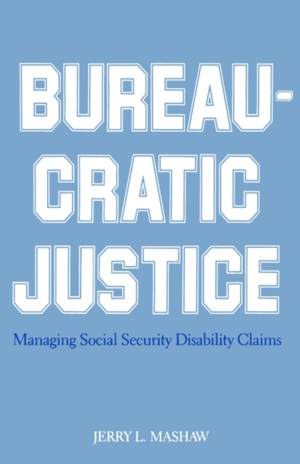
- Retrait gratuit dans votre magasin Club
- 7.000.000 titres dans notre catalogue
- Payer en toute sécurité
- Toujours un magasin près de chez vous
- Retrait gratuit dans votre magasin Club
- 7.000.0000 titres dans notre catalogue
- Payer en toute sécurité
- Toujours un magasin près de chez vous
Bureaucratic Justice
Managing Social Security Disability Claims
Jerry L Mashaw
Livre broché | Anglais
55,95 €
+ 111 points
Description
"Mashaw has taken . . . the Social Security Administration's handling of disability claims . . . and from it has drawn, not only a microsopic account and appraisal of SSA's methods and problems, but also a generalized and philosophic inquiry into the nature of the 'justice' such an agency, bureaucratically organized, can dispense. He provides an unorthodox redefinition of what the administrative law that matters is, and fresh insights inot why it matters and how it develops. . . . Brilliant."-Harvey C. Mansfield, Perspective
Spécifications
Parties prenantes
- Auteur(s) :
- Editeur:
Contenu
- Nombre de pages :
- 242
- Langue:
- Anglais
Caractéristiques
- EAN:
- 9780300034035
- Date de parution :
- 07-06-05
- Format:
- Livre broché
- Format numérique:
- Trade paperback (VS)
- Dimensions :
- 139 mm x 208 mm
- Poids :
- 317 g

Les avis
Nous publions uniquement les avis qui respectent les conditions requises. Consultez nos conditions pour les avis.






